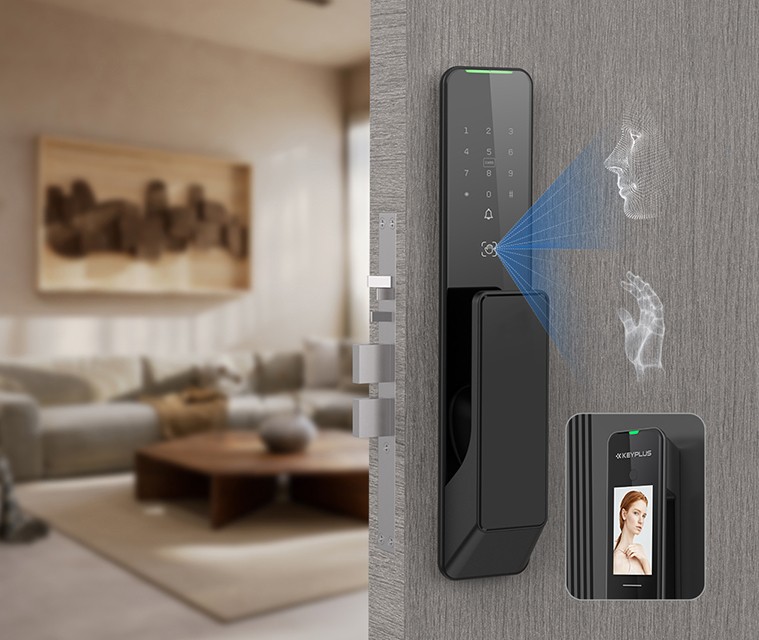Can Smart Locks Get Wet? A Complete Guide to Water Resistance
Smart locks offer convenience and enhanced security, but many homeowners worry about their durability—especially when exposed to rain, humidity, or accidental spills. Can smart locks get wet? The answer depends on the lock’s design and water resistance rating.
In this guide, we’ll explore:
How water-resistant smart locks really are
Which models handle rain & humidity best
What to do if your smart lock gets wet
Tips to protect your lock from water damage
1. Are Smart Locks Waterproof?
Most smart locks are water-resistant, not waterproof. This means they can handle light rain or humidity but shouldn’t be submerged or exposed to heavy water flow.
Water Resistance Ratings (IP Ratings Explained)
Smart locks (like electronics) are rated using Ingress Protection (IP) codes, such as IP65 or IP55:
- First Digit (Solid Particle Protection)
- 6 = Dust-tight (best for outdoor use).
- Second Digit (Liquid Protection)
- 5 = Protected against water jets (heavy rain).
- 6 = Protected against powerful water jets (not submersible).
- 7 = Can withstand temporary immersion (rare for smart locks).
Example:
- IP65 = Dustproof + handles heavy rain.
- IP44 = Splash-resistant but not ideal for direct rain.
2. Best Water-Resistant Smart Locks
If your lock is exposed to rain (e.g., on a patio or garage door), choose one with a high IP rating:
| Water Resistance (IP Rating) | Best For | |
|---|---|---|
| IP65 | Outdoor gates, rainy climates | |
| IP55 | Covered entryways | |
| Weather-resistant (no official IP) | Protected doors | |
| Not rated for outdoor use | Indoor/covered doors |
Key Takeaway:
- Outdoor/Exposed Doors → IP65.
- Covered Porches → IP55 is sufficient.
3. What Happens If a Smart Lock Gets Wet?
A. Light Rain or Humidity (IP55+)
No issue—these locks are designed to handle moisture.
B. Heavy Rain/Flooding (Non-IP65 Models)
Potential Problems:
- Short circuits in electronic components.
- Corrosion of metal parts over time.
- Keypad malfunction (if water seeps in).
C. Submersion (e.g., Accidental Hose Spray)
High risk of permanent damage—most smart locks aren’t waterproof.
4. How to Protect Your Smart Lock from Water Damage
Install Under a Roof or Awning
- Prevents direct rain exposure (even IP65 locks last longer this way).
Use a Weatherproof Cover
- Some brands sell silicone shields for extra protection.
Check Battery Compartment Seals
- Ensure no gaps where water could enter.
Avoid High-Pressure Water Spray
- Never clean with a hose/power washer.
Choose a Lock with an Overhang Design
- Locks like Ultraloq have a drip edge to divert water.
5. What to Do If Your Smart Lock Gets Wet
- Power it off (remove batteries immediately).
- Dry the exterior with a microfiber cloth.
- Let it air-dry for 24+ hours before reusing.
- Check for malfunctions (sticky keys, unresponsive touchpad).
- Contact support if issues persist (some brands offer water damage warranties).
6. Frequently Asked Questions (FAQs)
Q: Can I install a smart lock on an outdoor gate?
A: Yes, but only with an IP65+ rated lock.
Q: Will humidity damage my smart lock?
A: Most handle humidity well, but saltwater air (beach homes) can corrode metals faster.
Q: Are fingerprint scanners safe in rain?
A: IP65+ models work, but wet fingers may reduce accuracy.
Q: Can I use a hairdryer to dry a wet smart lock?
A: No! Heat can warp plastic—air-dry only.
7. Final Verdict: Can Smart Locks Get Wet?
Yes, if they have a high IP rating (IP55-65).
No, if they’re non-rated or exposed to flooding.
Best Practice:
- For outdoor use, choose IP65.
- For covered doors, IP55 works.
- Never submerge any smart lock.
Protect Your Investment
Water damage can void warranties, so always check your lock’s IP rating before installation. With the right precautions, your smart lock will stay functional for years—rain or shine!
Have you experienced water issues with a smart lock? Share your story below!
This guide is optimized for international readers, with clear ratings, solutions, and FAQs. Let me know if you’d like any adjustments!
Post time: Jun-04-2025


